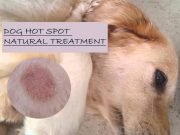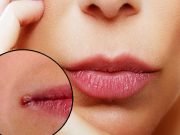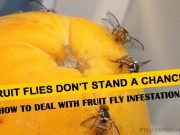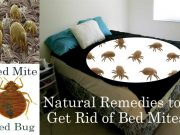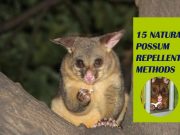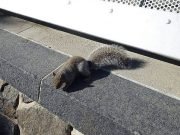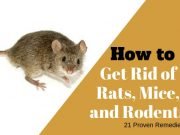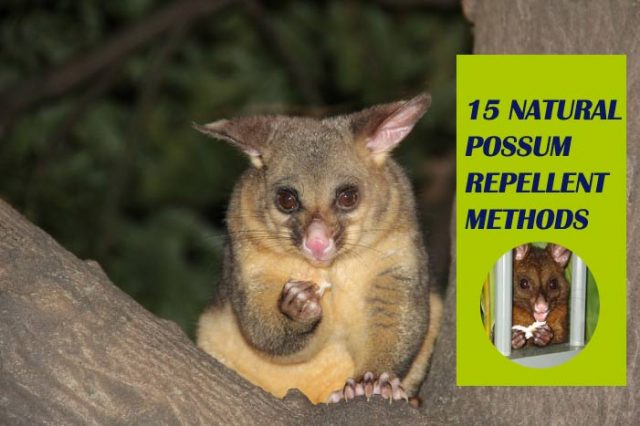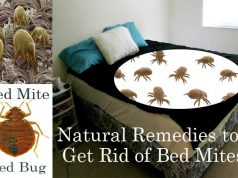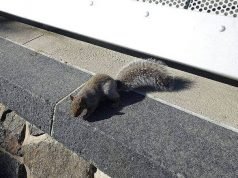Pest infestations have become a severe headache for house owners. Not just in suburban areas, but also the epidemic has caught on in congested neighborhoods as well. Not only are possums nefarious carriers of diseases that might prove fatal for you and your family, but also they can damage valuable furniture, clothes, and wreak havoc on your property. Different kinds of pests need to be handled differently, to ward them off your houses. Before we get there, let’s answer a couple of FAQs about possums.
What Attracts Possums to Your Homes?
In order to keep possums out, we need to understand why they seek shelter in our houses in the first place, so that those factors may be eliminated to prevent future infestations. Additionally, this information will help you use effective bait materials to lure out and catch the possum. These creatures rely heavily on scrap food. Your garbage bin, of course, is the biggest source of this scrap. Moreover, houses that are close to a fruit or herb garden will be more likely to attract an opossum. Thus, cutting off their food supply makes your house less likely to undergo a possum infestation.
What does a possum look like?
Before we move on to the remedies to repel possums, it is imperative that you are able to accurately identify the pest. Although these creatures are quite easy to identify because of their unique features like their pointed face, and a thick coat of greyish-black fur, people often confuse them with rats. Possums do not have hair on their tail and ears, which are larger than a rat’s. Also, if you look close enough, you will notice that the former use their tails as another limb to climb surfaces, like trees and pipes.
Next, we discuss 15 natural methods to clear your estate of possums.
1. Quassia chips
Quassia is a South American tree, whose bark contains a derivative that serves as an active ingredient in many commercially-sold pest repellents. Bits and chips of its bark can be bought over the counter and used to prepare an extremely effective homemade possum repellant spray. Immerse approximately 4 ounces of Quassia chips in half a gallon of water and heat it slowly for an hour or so over low heat, so that the water absorbs as much of the chips as possible. The thin liquid mixture should be sprayed on the property to ward off annoying possums.
2. Using molasses
Possums are drawn to a backyard with lush shrubbery. Dissolve a cup of molasses in a liter of water overnight and put the solution in a spray can. You may also add a bit of liquid dish-washing soap to it, which makes it more adhesive. Spray the mixture liberally on your plants and shrubs to guard them against possums. The mixture needs to apply every couple of days, and that’s after rains and watering, which could otherwise cause the solution to wash off. Test the mixture on a little patch of your plants first to be certain that it doesn’t cause them to die.
3. Water as repellent
Most house owners who have a lawn or a garden have sprinkler systems installed, which is one of the most hassle-free methods to keep opossums away from your property. They are nocturnal, which means that your sprinklers should be kept on at night because that is when these creatures are most likely to attack. You could opt for a motion-sensitive sprinkler system; in case you are looking for an energy efficient option. Take note, though, that this method is effective only during the initial days. Once the possums learn to adjust themselves to the sudden streams of water, this method fails.
4. Urine of a predator
Like most mammals, possums use their sense of smell to determine whether a particular area is safe for them to seek refuge. The smell of a predatory animal’s urine, a common way for animals to mark their territory, can be quite effective to keep away possums. The urine of the red fox, which is available quite readily and cheaply, is a safe pest control method. However, make sure that you use rubber gloves while dealing with the urine because its odor does not wash off easily. For the same reason, the spray should only be applied outdoors on dry, sunny days.
5. Granular repellents
In case the site of the infestation in your attic, roof or your garage or any indoor place, and when liquid repellents are not an option because of their stench, the next best option is a granular repellent. These repellents, usually, contain active ingredients like black pepper and capsaicin, which emit a smell that opossums find unbearable. Moreover, the taste of the repellent and the discomfort that it causes to the pests upon contact deter them from breeding inside your house. They are relatively harmless for pets and humans, and are an inexpensive option, a basic pack lasting nearly a month.
6. Pepper and hot sauce
Possums are, generally, attracted to sickly sweet smells, such as that of rotting fruit or decomposing garbage. An age-old recipe, renowned for keeping possums and other pests at bay, requires cayenne pepper, hot sauce, water and detergent of any kind. Mix the ingredients thoroughly and shake, or stir, until a smooth mixture is formed. Put the mixture in a spray bottle and apply it anywhere you feel necessary, even blind spots and under house areas like basements. The spicy smell of the mixture causes a burning sensation in the nasal tracts of pests, thereby, effectively discouraging the possums from coming anywhere near it.
7. Naphthalene balls
Mothballs, or naphthalene balls, that are used to prevent insects from attacking clothes while in storage, also serve as a natural repellant for possums. They are most effective in cases where you want to eliminate a possum from a closed space that is not easy for you to reach. This is a very humane method to scare off possums because mothballs are generally not strong enough to kill them, but may cause them physical discomfort, which discourages them from scourging for food in that area again. Moreover, they are completely safe to use even within the confines of your house.
8. Using ammonia
If there are no children or pets or people with breathing problems living in the house, ammonia may be used as another way to remove possums from your property. Ammonia is known for its unbearable stench. The bad news, however, is that its smell is not just harmful to pests, but also humans, which is why you should only consider this option to deal with extreme cases of infestations and use the ammonia in a limited manner. Once the possum has been dealt with, make sure that you take measures to thoroughly clean the house of the harmful residual ammonia.
9. Natural Baits
With remedies such as these, you can ward off all kinds of pests, so we’d recommend you don’t think on the lines of how to kill a possum. Humane traps are the best way to ensure both. By luring it out with a bait, you can trap the possum in a cage or a makeshift version of it until you find a suitable place to release it so that it cannot make its way back to your house. Make sure that the cage is tight enough to secure the animal properly. Inexpensive and easily available baits include marshmallows or rotting fish and fruits.
10. Garlic
Garlic has the same impact on possums as onions do on humans. Its smell makes their eyes sting, and consuming it can prove to be rather uncomfortable for the animal. Grind bits of garlic into fine granules and combine them with chili flakes, or even better, chili powder. Sprinkle the mixture liberally in crawlspaces and other areas of your property that are prone to possum attacks. Make sure, however, that children and pets are kept away from the mixture as consuming it could lead to severe discomfort. Do not sprinkle the mixture on plants as it can kill your garden.
11. Cucumber
Remember how possums are attracted to trash cans? Anything on the opposite end of the spectrum is, funnily enough, unbearable to them. The smell of cucumbers helps fend off possums as well as raccoons from shacking up in your house. Make a pulp out of a few fresh slices of cucumber and rub it on the corners of the house and other confined spaces on your property. Simply placing the pulp in small spaces will also do the trick. Keep changing the pulp every day because stale cucumber encourages possums to venture onto your property instead of doing the opposite.
12. Dealing with possum holes
Houses located near wooded areas will often have to suffer random visits from woodland pests. These animals live in the wooded areas and visit these houses in their search for food. On detecting a possum hole on your property or on its outskirts, you will notice that there is more than one hole in a single area. You need to plug all holes, except anyone that will serve as the exit hole, with either soft wire or stiff hardware cloth, so as not to hurt the animals. Sprinkling flour near the exit hole before closing it up helps you determine, from the footprints, whether the possum family has evacuated.
13. Using vinegar
Vinegar is a substance that most pests hate the taste of, not just possums. They can be used as an effective method to shoo opossums away. Place a cloth dipped and soaked in vinegar on or near places where the possum might come looking for food. These are areas such as the garbage bin and plants. However, if you are placing them near your plants make sure that the vinegar is not being soaked into the soils as that may adversely affect the health of the plants. You can, instead, spray vinegar diluted with water to reduce its potency and save your garden.
14. Pet hairs
Although cats and dogs are not predators, their hair can trick possums into thinking that a threat is present somewhere in the vicinity. On grooming your pets, do not throw away the hair that they have shed. Instead, place those hairs in pouches and place them in and around your house. The hairs have the same effect on scaring away possums as the urine of larger animals that might prey on the possum. Plastic may not be the best option to store the hair in as they may mask the smell. Cloth, on the other hand, is an excellent choice.
15. Edible Oils
Just like cats hate getting wet, possums are no different! They are very particular when it comes to being dry. This is why if you have a possum infestation outdoors, particularly in your lawn or garden, spraying or sprinkling edible oil on the grass will prevent these pesky animals from rummaging through your property. However, go easy on the amount of oil you are pouring as it is greasy and difficult to wash off, and can prevent adequate water from reaching your plants.
Dangers of a possum infestation
Possums carry mites, fleas, and ticks that may adversely affect the health of your pets. More directly, they can cause a wide range of far more dangerous diseases, such as tuberculosis, spotted fever, leptospirosis, and others. Although quite uncommon, there have been instances where they have attacked pets, and even attacked people trying to trap them with their sharp teeth. Possums usually act dead, hiss or growl, and release a foul smell from their rectal glands, much like a skunk, when scared. Besides medical dangers, these pests are also known for causing damage to property.
Precautionary measures to undertake
Getting rid of possums is not the only task; you need to take action to ensure that they stay away. One of the best ways to prevent possum infestations is to eliminate the source altogether, which also drives the problem away. These means keeping your house and its surrounding as spotless as possible. Regularly take out the garbage, and refrigerate fruits and meats during the summer months, instead of keeping them out in the open. Keep the shrubbery to a minimum, especially if you live close to a park. Keep an eye out for holes and burrows nearby your house.
Concluding remarks
Following the aforementioned remedies should be sufficient to keep the possum out. If, however, the problem persists, you should call a professional pest control service.
More Related Helpful Resources –





